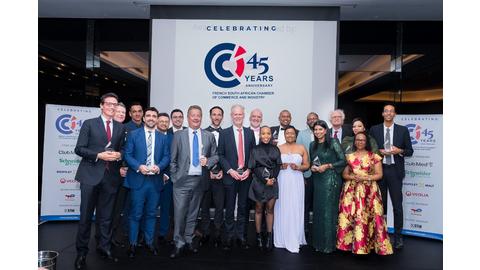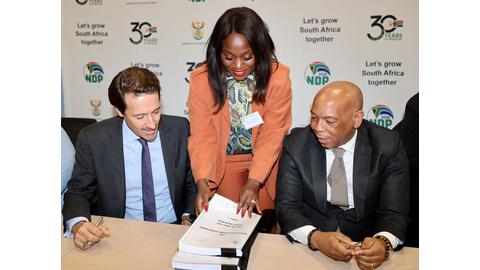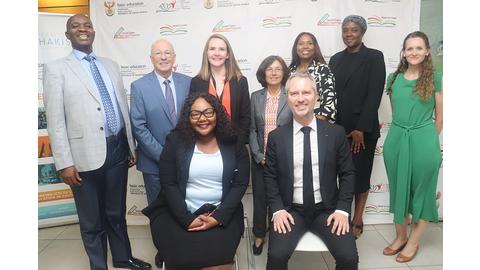Companies news
LEX Africa: African Trade Needs Better Strategic Planning and Implementation

In recent times African trade has experienced relatively good growth with the current, if slow, implementation of the African Continental Free Trade Area (AfCFTA) being a major positive factor.
Nevertheless the need for improving African trade continues especially if it is to play its important role to promote the improved diversification and sophisticated development of African economies which the continent needs with desired beneficial results for its peoples.
Trade remains a key catalyst with the tremendous transformative power necessary to help deliver a desired range of improvements in the societies concerned including economic security, social well-being, and employment creation with a broader tertiary sector.
Current practices would suggest that exporting African countries and regions should better manage linkages between targeted intended results and trade flows in order to improve these results with a focus on specific priorities. These are multi-faceted complex issues and are directly related to required strategies for the various products and sectors themselves.
Well-devised trade strategies are required that especially target key sectors and results.
The overall developmental packages which trade can deliver need holistic approaches from their supportive policy creation to implementation.
In this of critical importance is the mobilization of multi-stakeholder cooperation and especially that of the private sector. Similar actions regarding trade-supportive, if often tangential, issues ranging from legal to financial are equally necessary.
Such strategies inter alia call for increased financial support from all stakeholders into all aspects of a value-added supply chain ranging from innovative academic activities that coordinate with commercial application, to capacity building and outreach.
Among the especially promising economic sectors that can be targeted by African countries for improved trade flows are those related to the increasingly important bio-economy, where multiple good results in the commercial forestry sector already illustrate the great potential available, as well as those in the broader Green Economy generally including those related to clean energy and waste disposal.
South Africa has a Bio-Economy Strategy as has the East African region but much more needs to be done to get better results.
Trade related to agriculture and food production remains of critical relevance for Africa along with activities linked to expanding processing and manufacturing generally.
These also deserve improved attention. The South African Business Council recently called for proper implementation of the Master Plan for Agriculture and Agricultural Processing, yet this seemingly lacks specifics regarding trade strategies.
Improved African trade strategies relating to natural resources such as minerals seem needed, especially if compared with the new targeted strategy of the European Union (EU) to get a stable supply of so-called “critical minerals,” where local processing and benefaction are of paramount relevance for Africa.
Growth of the African digital sector, also related to the Green Economy, could be better synergized with its application to various other sectors and improving trade where in addition to its own relevance it helps provide needed intangible infrastructure for improved trade roll-out including improved regulatory frameworks for good governance generally.
Trade strategies must increasingly help drive and utilize South Africa’s international relationships with special focus on chosen important economic partners.
In this context innovative trade, and economic, diplomacy can focus on chosen sectors and economic issues in parallel with broad trade agreements which need much more capacity and time.
Implementation of the AfCFTA and strong economic partnerships as with Africa, along with the established economic ties with the EU and UK, remain of special importance.
Nevertheless those with the EU seem particularly underutilized given the complex sophisticated nature of the EU economy as well as the activities related to managing its trade relations which offer both good opportunities and examples of trade strategies and actions.
South Africa must also give urgent attention to developing improved formal trade ties with others such as with members of the BRIC grouping.
Among missed opportunities was in early 2024 when the Belgian EU Council Presidency hosted the latest meeting of the Ministerial Forum between the EU and the countries of the Indo-Pacific region.
South Africa did not attend despite being one of the traditional geo-political gateways into the Indian Ocean together with South-East Asia in the east, apart from the Suez-Red Sea route.
South Africa has no trans-Indian Ocean trade agreements and could well utilize such forums, as with those of the Indian Ocean Rim Association (IORA), to pursue new trade opportunities including those focused on priority sectors.
In this case it could have leveraged enhanced results by the involvement of the EU with which it is the only African country having a Strategic Partnership Agreement.
The Forum in January helped fuel the success of the recent visit by the Hungarian Foreign Minister to South-East Asia where he announced that the now incoming Hungarian EU Council Presidency will have strengthened EU-ASEAN trade as a priority.
In helping up-scale Africa’s trade strategies and their implementation South Africa’s strong and sophisticated economy gives it an especially good basis to help lead in improving the nature as well as the volumes and spin-off results of Africa’s trade, thereby building on its previous leadership actions such as those regarding the AfCFTA.
These are issues where South Africa can better utilize its positioning to give new needed leadership and could be among the priorities of the new Government of National Unity.
South Africa, as with Africa, needs an expanded scope and reach for its trade in what should be a re-invigorated more sophisticated targeted Economic/Trade Strategy inclusive of selected priority sectors.
Improving the dialogue surrounding, and nature of, African trade will inter alia help the African economy achieve greater multi-dimensional improved resilience, autonomy and security strengthening the African position in the multi-polar global community.
This will again inter alia strengthen African capacities to better engage in international trade and investment deals with positive spin-off for itself and ultimately the global community.
The changing international context of Africa’s trade now include shifts from the initial post-1945 global economic order with new dimensions relating to trade governance and a plethora of emerging issues, giving both challenges and opportunities.
If Africa does not better engage on trade, as with other matters, it will lose opportunities to contribute towards the new system in ways beneficial to Africa.
Trade liberalism is not the only answer but improved engagement between Africa and its trade partners can lead to innovative mutually satisfactory multi-formats of economically beneficial trade priorities for both.
Dr John Maré is a former South African diplomat now an adviser on international public affairs and diplomacy.














